2
Party animal
Vince was 26 when his mother died of a massive heart attack in 2001. Though Rose Marie Zangaro had been sick for years with lupus and rheumatoid arthritis, Vince was still shocked.
Her death “wasn’t even on my radar,” he said.
His sister, Donna, had been their mother’s primary caregiver. As Rose’s heart grew weaker, she knew her life was drawing to a close and she recognized the tension between Donna and her father. One day she sat her son down in Albert’s favorite recliner.
It’s up to you to take care of Dad, she said.
Vince had agreed, of course. But now that Rose was gone, the promise he made to her resurfaced.
Up until then, Vince didn’t have a close relationship with his father. The differences between them seemed vast.
Albert liked to work with his hands, fixing aircraft engines and air conditioners for a living. His life was about providing for his family. Vince aspired to be a rock guitarist and singer. He was a heavy drinker with a cocaine habit who lived on the road as a personnel recruiter for Hot Topic, a teen clothing chain. His life was all about making money, meeting girls and having fun.
Albert dressed conservatively in jeans and T-shirts emblazoned with logos for the Navy, the Air Force or John Deere. Vince got his nose pierced when he was 17, then his lip and his eyebrow. He added 00 gauge holes in his earlobes, bleached his hair and adorned his skin with tattoos.
But when his mother died, Vince realized it was time to put their differences aside. He quit his job and moved into his father’s house in Marietta.
4
Caregiver fatigue
Vince, who had never taken care of anyone but himself, was suddenly thrust into the role of caregiver, and he struggled. Albert’s weakening mind left him confused, scared and sad. Doctors loaded him up on anti-depressants that didn’t mix well with his other medications, and he ended up frustrated and disoriented. Looking back, Vince regrets blindly trusting the doctors.
Vince dialed back Albert’s meds, fell into step with his father’s slower pace and together they began working on tasks using simple motor skills. They began to co-exist more comfortably. But the frustration of not knowing more about the disease, coupled with the family’s strapped finances, ate away at Vince. He found himself growing short-tempered and turning his anger on Albert. Vince was reminded of his dad lashing out at him when he was younger.
“I remember yelling at my father, not understanding why he was doing this to me and calling him selfish,” Vince said. “I would drop on the floor in tears on many occasions. I just didn’t want to go on.”
One time, Albert awoke in the middle of the night in a terror. Wandering through the kitchen, the living room, the bedroom, he banged loudly on the doors and screamed. The next day Vince took Albert’s bedroom door off its hinges. Eventually, he and Albert began sharing a bedroom.
At first Vince tried to stay in touch with friends, to balance his caregiving duties with some social time, but he didn’t know how anyone in their early 30s could relate to his reality. He started lying to friends, telling them he had gigs when they called to invite him out. In reality, he couldn’t get his band back together because he couldn’t leave his father at home alone.
The loneliness left Vince feeling isolated and adrift. But he persevered.
“I made my dad a promise that I would care for him no matter what.”
Vince grew depressed and even feared he was developing lupus at one point. He realized he needed to ask for help. That’s when he found out how little assistance existed for family caregivers. Online he found self-help blogs and links to counseling providers and tips for getting Medicaid, but Albert needed tangible things like a wheelchair and a ramp so he could go to his doctor’s appointments.
Having watched his own father deteriorate in a nursing home, Albert had begged Vince not to let him end up the same way. But Vince no longer knew what to do and he started to look at nearby facilities.
But he’d made a promise. He just couldn’t bring himself to break it. That’s when it hit.
“I had a decision to make: Give up or grow up,” Vince said. “I started to change my whole way of thinking. Instead of dad having to live in our world, I decided to live in his.”
6
A daily schedule
Today the Zangaro’s family life centers around a daily routine.
The alarm goes off at 5 a.m. and Amy leaves for work at a nearby private preschool.
Vince walks Jupiter, the couple’s 2-year-old pit bull/whippet mix. Then, he wakes Albert, removes his diaper, and together they enter the warm shower.
Albert is no longer able to walk unassisted, so Vince uses his frame to support his father’s 150-pound body as they enter the stall. Vince uses the opportunity to stretch his dad’s muscles. Together they sway their arms. They hum. Their feet shuffle in a kind of dance. Father and son, in tandem, move to their own private rhythm. Chappie, their pet cockatiel, hops alongside Albert, bouncing as they exercise. When Vince and Albert are done, Chappie tags along to the kitchen, hesitating when Albert stumbles a bit.
Breakfast is a bowl of oatmeal. By then, three hours of the day are already gone. The routine helps keeps Albert calm and Vince organized.
After an early lunch, Vince makes phone calls on behalf of the festival and talks to other caretakers who feel exasperated and lonely. He reminds them in social media posts that they’re not alone, and he answers when they call.
Albert’s afternoons are filled with puzzle games; he plays with the pieces rather than fitting them together. He colors in coloring books and builds block towers. Some days Vince feels more like the parent of a preschooler than his father’s son.
They can only go outside if the temperature is just right because Albert’s body doesn’t properly regulate heat, and he has severe allergies, too.
He has a wheelchair now, which has given him more mobility, but their neighborhood is too hilly to walk around, so they sit on the porch, instead.
Amy returns from work about 4:30 p.m. and the family eats dinner together. Everyone is usually in bed by 7 p.m.
Occasionally Albert calls Vince “Dad.” Vince takes comfort in the knowledge that his care has enhanced the length and quality of his father’s life.
7
Power of knowledge
Alzheimer’s has been Vince’s whole life for 13 years now. He knows how it ends. Eventually his father will forget how to chew. His muscles will begin to fail. His lungs will fill up with fluid. Pneumonia is a common cause of death for people with Alzheimer’s disease.
His whole identity is tied to caring for Albert, and he’s terrified to think about what he will do when his father is gone. He’s thankful he has the music festival; he’s currently in the process of establishing its nonprofit status.
Vince understands what’s ahead, but he tries not to think about it. Not just for his father, but for himself. The disease, for which there is no cure, can be genetic and it is common among the men in Vince’s family.
Albert has Vince and Amy to care for him, with a little bit of income from Social Security and a small pension from his military service. He has health insurance through Blue Cross Blue Shield and Medicare.
Vince and his wife don’t have children and they don’t have health insurance. Vince doesn’t have a pension to fall back on, and he hasn’t been contributing to Social Security for 13 years now, so he doesn’t expect much there when he retires.
There is a test Vince can take to determine if he has the gene linked to early-onset Alzheimer’s. It costs $1,500. He doesn’t have the money, but he plans to get it somehow. He wants to take that test, although he feels certain he knows the outcome.
“I know I’m going to get it.”
Having the knowledge would make him a better advocate, he says. His young face would show others that Alzheimer’s isn’t “an old person disease.”
Knowing that one day he might end up like his father, Vince strives to live in the moment. It helps him feel in control. So he multi-tasks and is always doing five things at once. Because pausing too long lets the reality sink in that the lost look in Albert Zangaro’s eyes is a mirror and Vince isn’t ready to see his reflection there. The family lives in the present because memories can’t be counted on.
ABOUT THE STORY
I met Vince Zangaro when he was raising funds for the first Alzheimer’s Music Festival in 2013. The magazine I founded sponsored the festival with a full-page ad. I admired what he was doing as an entrepreneur and a caregiver, and we’ve been friends on Facebook ever since. I’ve wanted to tell Vince’s story for years because after a rough start, he finally seemed at peace with his role and truly happy. His story is an inspiring one, especially for the 15.7 million people in the U.S. caring for family members with Alzheimer’s.
Ellen Eldridge
Contributing writer
personaljourneys@ajc.com

ABOUT THE REPORTER
Ellen Eldridge is a breaking news reporter for The Atlanta Journal-Constitution. Before joining the AJC she was a freelance and community news reporter and the founder of Target Audience magazine. She is married and has two children.
ABOUT THE PHOTOGRAPHER
Bita Honarvar is an Atlanta-based photographer whose work has appeared in numerous national publications including The New York Times, The Guardian US, The Chicago Tribune and The Atlanta Journal-Constitution, where she was a staff photojournalist and photo editor for 16 years. Her work has taken her around the United States and abroad, including stints in Afghanistan, Iraq and Iran.



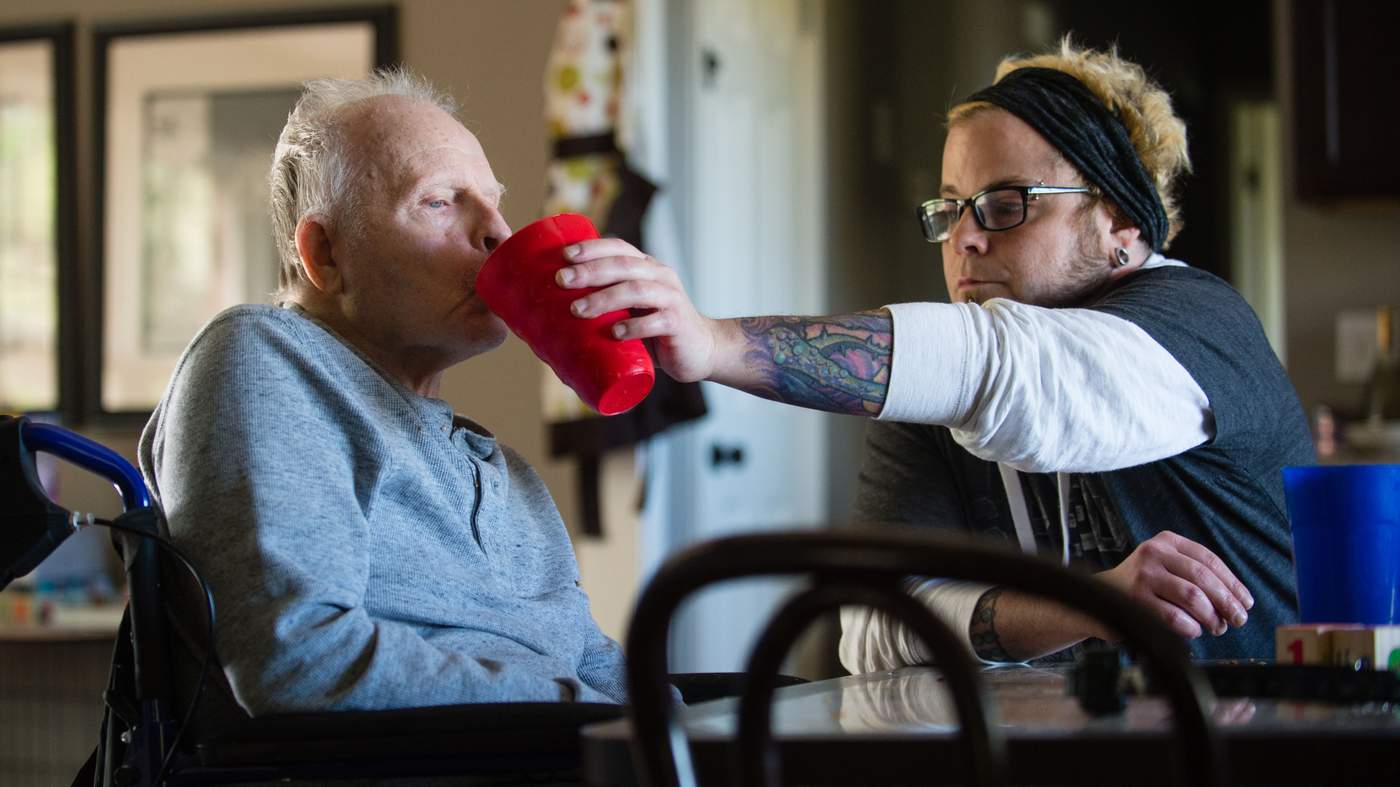
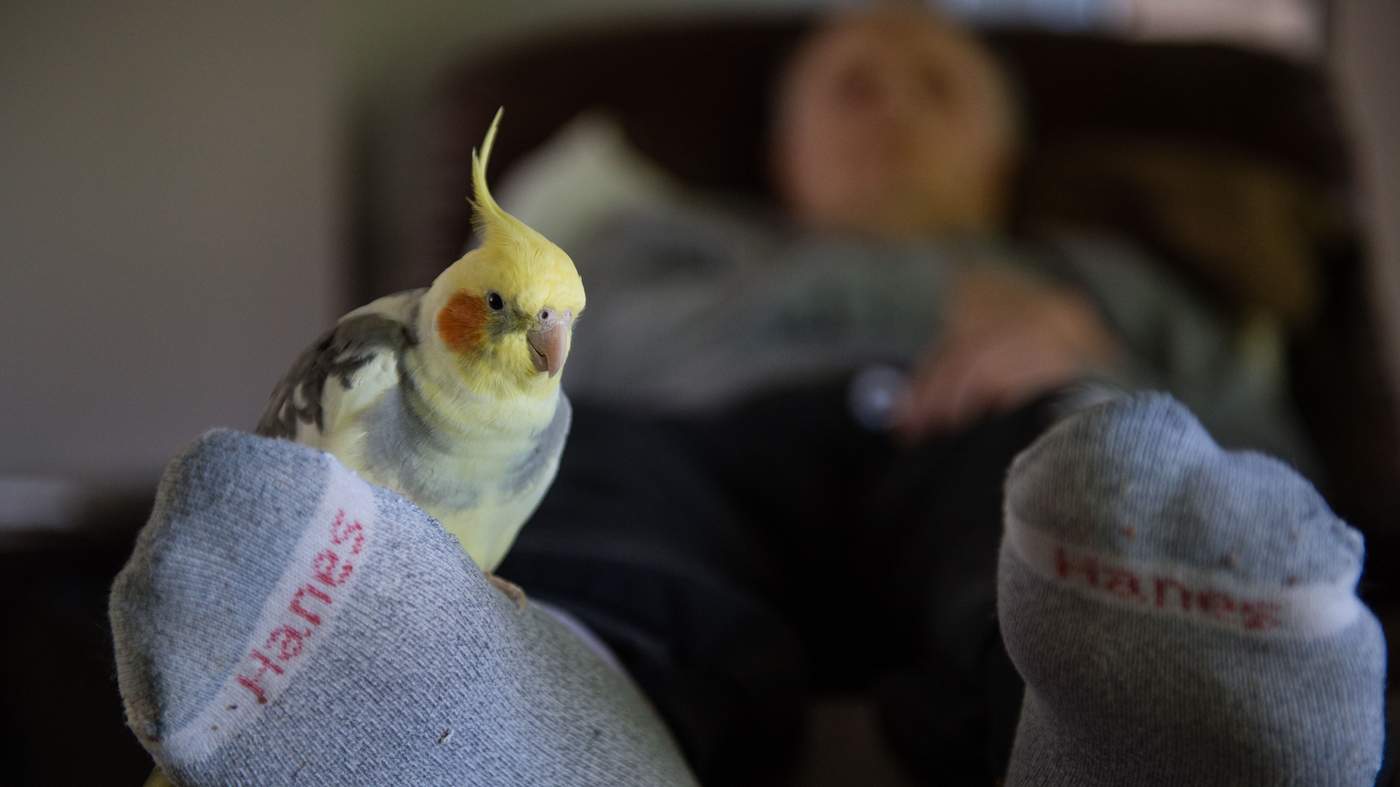
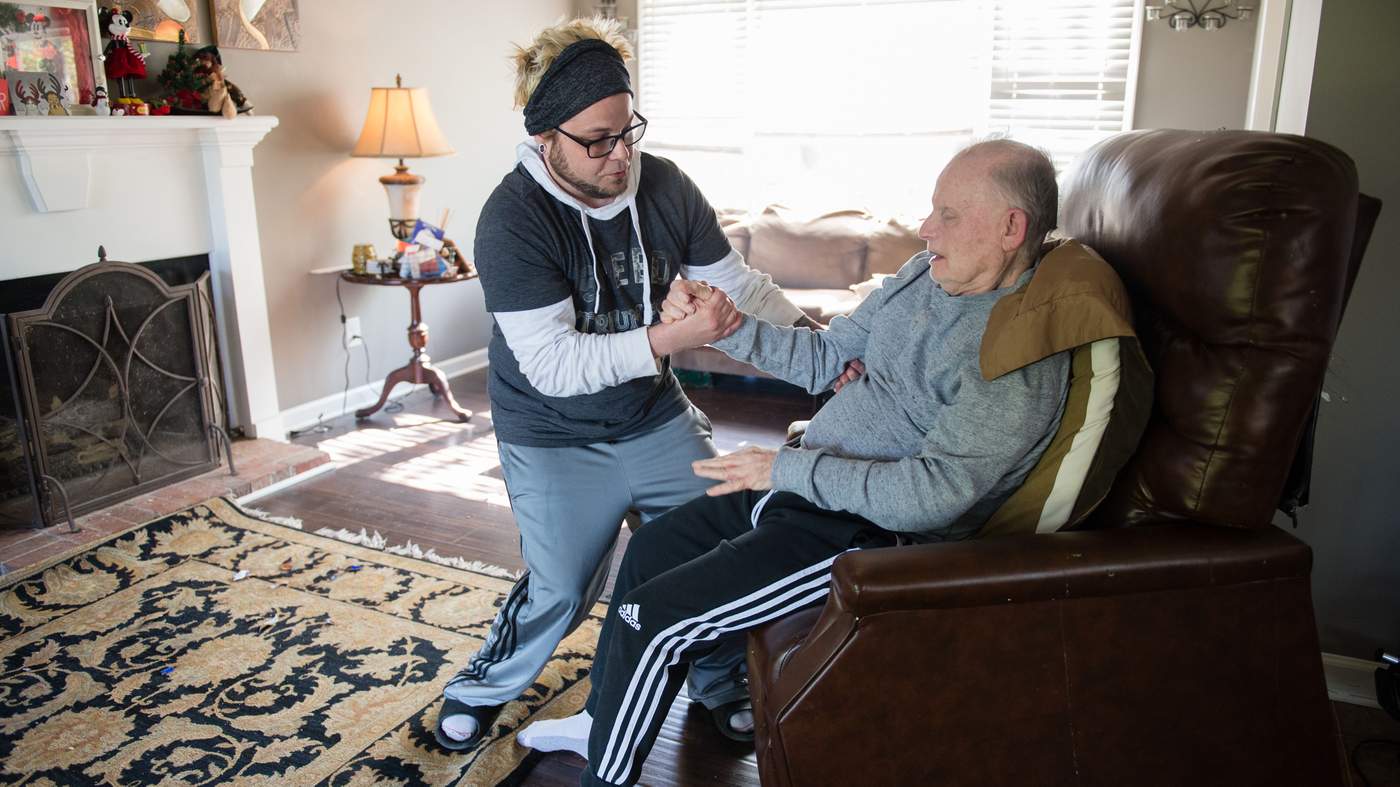

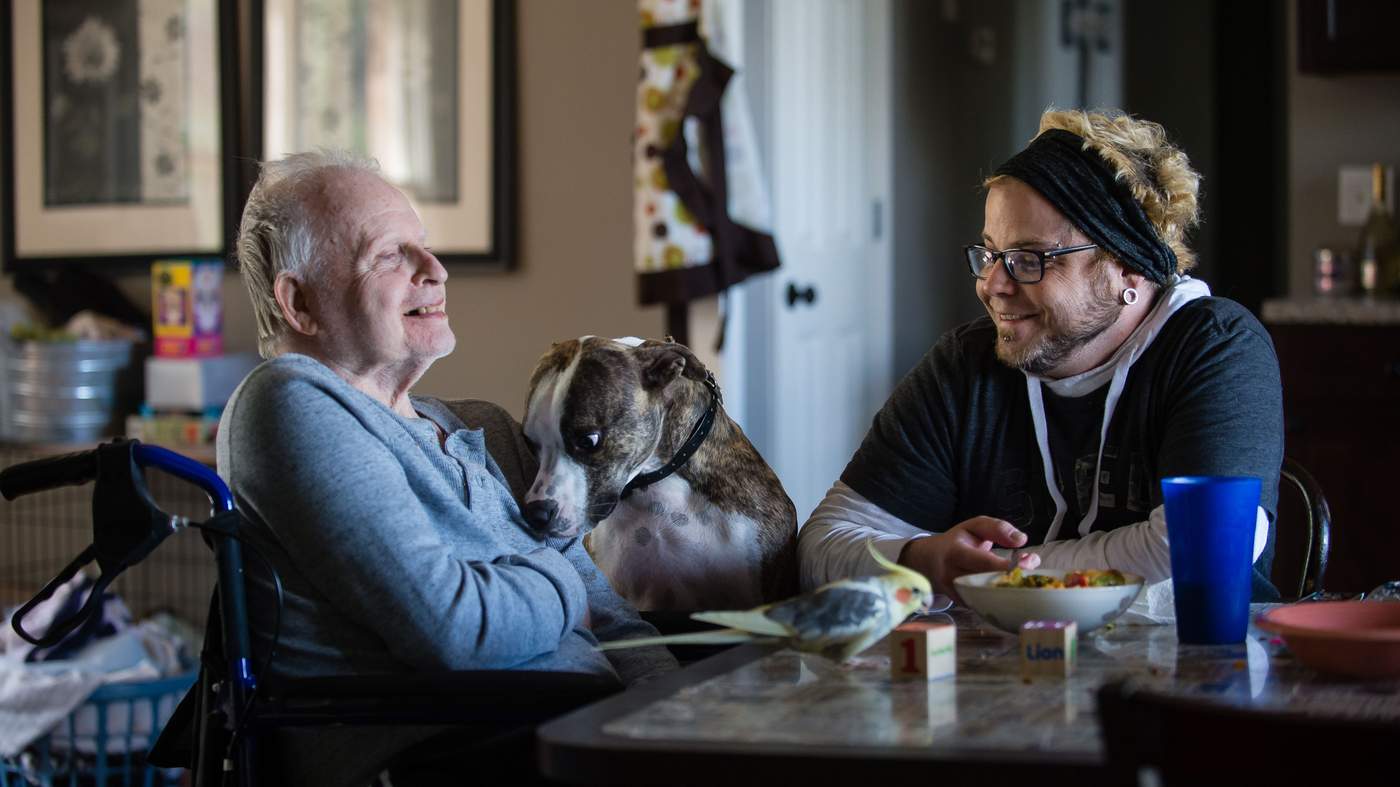
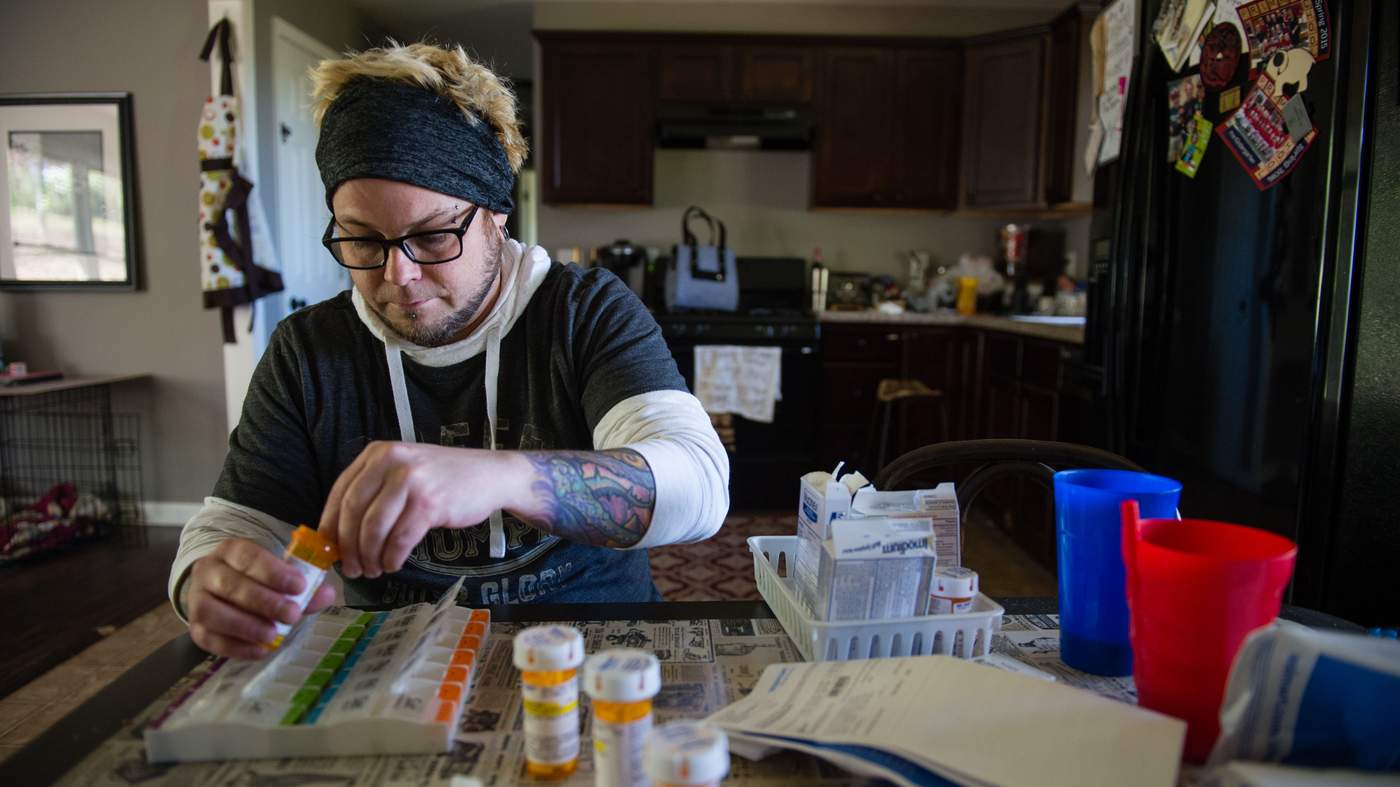


Please confirm the information below before signing in.